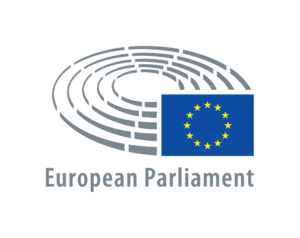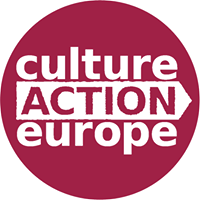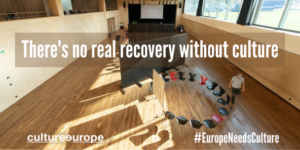 The study was planned in the annual work program 2020 for the implementation of the program “Creative Europe” as a core element of the New European Theatre Initiative for sectoral support of the theater and performing arts sector. The results are now available. The intention is to improve support for the theater sector at the EU level. Based on quantitative and qualitative data collection, the study undertakes a first comprehensive mapping of the socio-economic profile and impact of the theater sector in the EU. It highlights the diversity of the sector and the differences between actors in terms of their business models, funding/ownership structures and program systems. In addition to collecting socio-economic data, the study also addresses the initial impact of the COVID-19 pandemic and provides a detailed analysis of the support systems available to the theater sector in the countries of the European Union. The study also addresses aspects such as training of theater professionals, gender balance, sustainability, and accessibility within the sector.
The study was planned in the annual work program 2020 for the implementation of the program “Creative Europe” as a core element of the New European Theatre Initiative for sectoral support of the theater and performing arts sector. The results are now available. The intention is to improve support for the theater sector at the EU level. Based on quantitative and qualitative data collection, the study undertakes a first comprehensive mapping of the socio-economic profile and impact of the theater sector in the EU. It highlights the diversity of the sector and the differences between actors in terms of their business models, funding/ownership structures and program systems. In addition to collecting socio-economic data, the study also addresses the initial impact of the COVID-19 pandemic and provides a detailed analysis of the support systems available to the theater sector in the countries of the European Union. The study also addresses aspects such as training of theater professionals, gender balance, sustainability, and accessibility within the sector.
One of the core recommendations of the study is the establishment of the European Theatre Forum, thereby fostering regular and structured dialogue between member states, European institutions, theater and performing arts associations, and civil society. The first European Theatre Forum 2020 in Dresden was co-organized by the ITI and resulted in the Dresden Declaration. The European Theatre Forum and the Dresden Declaration flank the study as key elements of the New European Theatre Initiative.
Study (99 pages)
Executive summary (10 pages)

 The EP Culture Committe has published a study by IDEA Consult, Goethe-Institut, Inforelais and Values of Culture&Creativity on Covid19 crisis effects on the cultural and creative sectors (CCS) as well as the policy responses that are formulated to support the sectors. The already fragile organisational structures and working practices are hit by a chain of effects, severely impacting the economic and social situation in the CCS, especially the venue- and visitor-based sub-sectors such as the performing arts and heritage. Since policy support focuses on emergency measures, not (yet) on relaunch and innovation the study proposes three flagship measures: 1) Fair working system, 2) European digital culture frameworks and 3) taking CCS as integral part of innovative and cohesive societies.
The EP Culture Committe has published a study by IDEA Consult, Goethe-Institut, Inforelais and Values of Culture&Creativity on Covid19 crisis effects on the cultural and creative sectors (CCS) as well as the policy responses that are formulated to support the sectors. The already fragile organisational structures and working practices are hit by a chain of effects, severely impacting the economic and social situation in the CCS, especially the venue- and visitor-based sub-sectors such as the performing arts and heritage. Since policy support focuses on emergency measures, not (yet) on relaunch and innovation the study proposes three flagship measures: 1) Fair working system, 2) European digital culture frameworks and 3) taking CCS as integral part of innovative and cohesive societies. The European Commission launched a public consultation on the development of a European Democracy Action Plan (EDAP). On September 14th Culture Action Europe and many other European networks and institutions welcomed the initiative and called the Commission in an open letter to reflect in it especially the status of the freedom of artistic expression as a fundamental aspect of cultural rights. The letter submits the following recommendations to the Commission:
The European Commission launched a public consultation on the development of a European Democracy Action Plan (EDAP). On September 14th Culture Action Europe and many other European networks and institutions welcomed the initiative and called the Commission in an open letter to reflect in it especially the status of the freedom of artistic expression as a fundamental aspect of cultural rights. The letter submits the following recommendations to the Commission: In the late summer of 2020, IAA Europe starts a series of online debates to bring members and supporters closer together, to discuss what can be the role of artists associations today and especially their (re)union on an international level.
In the late summer of 2020, IAA Europe starts a series of online debates to bring members and supporters closer together, to discuss what can be the role of artists associations today and especially their (re)union on an international level.